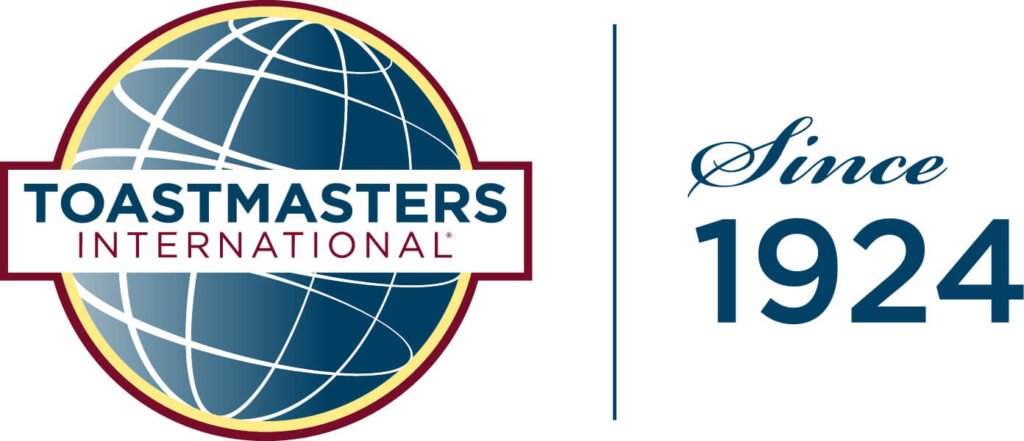
The Importance of Feedback in Toastmasters International Meetings
Feedback plays a crucial role in Toastmasters International meetings as it is an essential part of the learning process for members. It provides individuals with valuable insights into their communication and leadership skills, allowing them to identify areas for improvement and build upon their strengths. In a Toastmasters meeting, feedback is given after every speech or role-play, allowing members to receive immediate and constructive criticism from their peers.
This feedback is instrumental in helping members grow and develop their skills, as it provides them with specific and actionable advice on how to enhance their performance. Additionally, feedback in Toastmasters meetings fosters a supportive and encouraging environment, where members feel empowered to take risks and push themselves out of their comfort zones. Furthermore, feedback in Toastmasters meetings serves as a tool for self-reflection and self-improvement.
By receiving feedback from fellow members, individuals are able to gain a better understanding of their strengths and weaknesses, enabling them to set realistic goals for their personal and professional development. This process of self-assessment is essential for continuous improvement and growth, as it allows members to track their progress and make necessary adjustments to their communication and leadership style. Ultimately, the role of feedback in Toastmasters International meetings is to provide members with the guidance and support they need to become confident and effective communicators and leaders.
Summary
- Feedback is a crucial part of Toastmasters International meetings, providing members with valuable insights and opportunities for growth.
- Constructive feedback helps members improve by highlighting their strengths and areas for development in a supportive environment.
- Receiving feedback is essential for developing communication and leadership skills, as it allows members to learn from their experiences and make necessary adjustments.
- Creating a positive feedback culture in Toastmasters meetings fosters a supportive and encouraging environment for members to thrive and develop their skills.
- Feedback has a significant impact on personal and professional growth, enabling members to refine their abilities and achieve their goals.
How Constructive Feedback Helps Members Improve
Delivering Constructive Feedback
When delivered effectively, constructive feedback provides individuals with specific and actionable advice on how to improve their performance. It focuses on the strengths of the speaker or leader, while also highlighting areas for improvement in a supportive and encouraging manner.
The Benefits of Constructive Feedback
This type of feedback is invaluable for members, as it allows them to gain a better understanding of their strengths and weaknesses, and provides them with the guidance they need to grow and develop. Moreover, constructive feedback helps members build confidence and self-awareness. By receiving constructive criticism from their peers, individuals are able to gain valuable insights into their communication and leadership style, enabling them to make necessary adjustments to their approach.
Fostering a Culture of Continuous Improvement
This process of self-reflection is essential for personal and professional growth, as it allows members to identify areas for improvement and set realistic goals for their development. Additionally, constructive feedback fosters a culture of continuous improvement within Toastmasters meetings, where members are encouraged to strive for excellence and support one another in their journey towards becoming effective communicators and leaders.
The Importance of Receiving Feedback in Developing Communication and Leadership Skills
Receiving feedback is crucial for individuals looking to develop their communication and leadership skills, as it provides them with valuable insights into their performance and areas for improvement. In Toastmasters International meetings, members have the opportunity to receive feedback from their peers after every speech or role play, allowing them to gain a better understanding of their strengths and weaknesses. This feedback is instrumental in helping individuals identify areas for improvement and build on their strengths, enabling them to become more effective communicators and leaders.
Furthermore, receiving feedback is essential for personal and professional growth. It allows individuals to gain a better understanding of how they are perceived by others, enabling them to make necessary adjustments to their communication and leadership style. This process of self-awareness is crucial for individuals looking to advance in their careers or take on leadership roles, as it allows them to develop the skills needed to effectively communicate and lead others.
Ultimately, the importance of receiving feedback in developing communication and leadership skills cannot be overstated, as it provides individuals with the guidance and support they need to become confident and effective communicators and leaders.
Creating a Positive Feedback Culture in Toastmasters Meetings
Creating a positive feedback culture in Toastmasters meetings is essential for fostering a supportive and encouraging environment where members feel empowered to take risks and grow. This can be achieved by promoting a culture of respect and appreciation, where members are encouraged to provide constructive criticism in a supportive and non-judgmental manner. Additionally, creating a positive feedback culture involves recognising and celebrating the achievements of members, while also providing them with specific and actionable advice on how to improve.
Moreover, creating a positive feedback culture in Toastmasters meetings involves promoting open communication and active listening. Members should be encouraged to express their thoughts and opinions openly, while also being receptive to feedback from their peers. This creates an environment where individuals feel valued and supported, enabling them to take on new challenges and push themselves out of their comfort zones.
Ultimately, creating a positive feedback culture in Toastmasters meetings is essential for fostering a sense of community and collaboration, where members can learn from one another and grow together.
The Impact of Feedback on Personal and Professional Growth
The impact of feedback on personal and professional growth cannot be overstated, as it provides individuals with the guidance and support they need to become confident and effective communicators and leaders. Feedback enables individuals to gain valuable insights into their strengths and weaknesses, allowing them to identify areas for improvement and build on their strengths. This process of self-reflection is essential for personal growth, as it enables individuals to set realistic goals for their development and track their progress over time.
Furthermore, the impact of feedback on personal and professional growth extends beyond individual development, as it also fosters a culture of continuous improvement within organisations. By providing employees with specific and actionable advice on how to enhance their performance, organisations can create an environment where individuals are encouraged to strive for excellence and support one another in their journey towards becoming effective communicators and leaders. Ultimately, the impact of feedback on personal and professional growth is far-reaching, as it enables individuals to develop the skills needed to succeed in both their personal and professional lives.
Tips for Giving and Receiving Effective Feedback in Toastmasters
Key Principles of Giving Effective Feedback
Additionally, giving effective feedback involves being respectful and considerate of the speaker or leader’s feelings, whilst also being honest and transparent about areas for improvement.
Receiving effective feedback in Toastmasters involves being open-minded and receptive to criticism from peers, whilst also being proactive in seeking out advice on how to improve.
Receiving Feedback with an Open Mind
It is important to listen actively to the feedback provided, whilst also asking clarifying questions to gain a better understanding of how to make necessary adjustments to your communication or leadership style.
Implementing Feedback for Growth and Development
Additionally, receiving effective feedback involves being grateful for the insights provided by your peers, whilst also taking the necessary steps to implement the advice given in order to grow and develop your skills.
How Toastmasters Encourages a Supportive Environment for Feedback
Toastmasters encourages a supportive environment for feedback by promoting a culture of respect and appreciation within its meetings. Members are encouraged to provide constructive criticism in a supportive manner, while also recognising and celebrating the achievements of their peers. Additionally, Toastmasters encourages open communication and active listening, where members are empowered to express their thoughts openly while also being receptive to feedback from others.
Furthermore, Toastmasters encourages a supportive environment for feedback by providing members with the tools they need to give and receive effective criticism. This includes training sessions on how to deliver constructive feedback in a supportive manner, as well as opportunities for members to practice giving and receiving criticism in a safe and encouraging environment. Ultimately, Toastmasters encourages a supportive environment for feedback by fostering a sense of community and collaboration within its meetings, where members can learn from one another and grow together in their journey towards becoming confident communicators and leaders.
In a recent article on the London City Toastmasters website, a case study was presented that highlighted the impact of feedback in Toastmasters International meetings. The study demonstrated how constructive feedback can help members improve their public speaking and leadership skills. The article emphasised the importance of creating a supportive environment where members feel comfortable giving and receiving feedback. This aligns with the principles of Toastmasters International, which aims to provide a positive and encouraging space for personal and professional development. To read more about the impact of feedback in Toastmasters meetings, visit this case study on the London City Toastmasters website.

